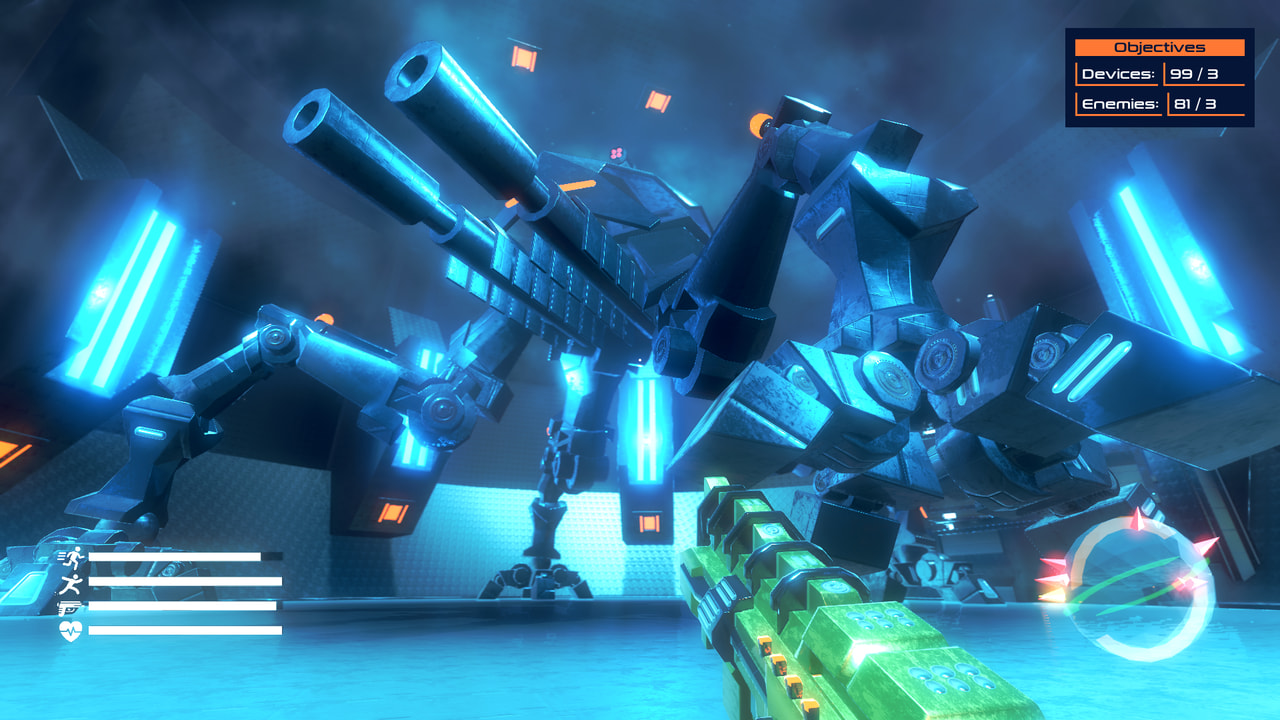Welcome to another developer interview following the introduction of the Godot Showcase page! This week, we are interviewing Leonardo “Leocesar3D” Veloso about their game Human Diaspora.
Introduce yourself in a few sentences.
My name is Leonardo Veloso and I am a 3D artist working on TV broadcasting in Brazil, in my spare time I am a hobbyist game developer.
Introduce your project in a few sentences: description, supported platforms, release date, etc.
Human Diaspora is a First-Person Shooter where the player must conquer the colony planet to save humanity. It is available for Linux and Windows and I released it in September 2020. You can find it as Early Access in Steam.
How did you discover Godot? When did you start using it? Do you have prior experience with other game engines?
I found Godot when I looked up for a FOSS alternative for Unity/Unreal and first used it in October 2019. I began making games with Game Maker 8, then switched to Unity to create my first 3D game and kept using it until I tried Godot. Now I use Godot as my only Game Engine tool.
Why did you choose Godot for your project?
Foremost, Godot is FOSS. It entails freedom to dispose of my game projects as I best see fit without worrying about the intricacies of software licenses. And while learning to use it, I realized it already had the necessary set of tools to pull out my game ideas. The node architecture with the concept of scene within scenes and the straightforward way of scripting with GDScript sealed the deal for me.
Which parts of the game development process did you enjoy the most while working on your project?
I just love to see my 3D models come to life inside the game engine, walk around, look at the details, and of course, generate interactivity for them is pure bliss and joy.
Which parts of the game development process did you find the most difficult to apply in your project?
I am probably not alone on this one: Game Design. Creating a fun game is second nature to some people, but for me, it is the most challenging aspect of game creation. What is fun for me maybe is bad design, not fun, or lacking for most of the players?
How has Godot helped you advance on your project? Which aspects of Godot do you consider to be its strength?
I love the iterative approach of Godot to test ideas as fast as possible: import a model, create a sub-scene for it with its associated specialized scripts, hit play and iterate over.
How do you find Godot’s multi-platform support, both for the editor and your final project?
In my case, it is just a button press away to see my game running on Linux/Windows/Mac.
Which challenges have you encountered when using Godot?
Debugging: some errors pop here and there, and it is really hard for me to trace its roots or if it is an engine bug. Sometimes their description is lackluster and confusing. I am staring at you shader compilation and parenting errors.
Which features would you like to see in future versions of Godot?
I want the “Make it look beautiful” button implemented. Jokes apart, as a 3D artist I want hassle free look and feel configuration of 3D scenes. The PBR approach associated with groundbreaking dynamic/static global illumination, environmental effects as volumetric lighting, realistic post-processing effects, and of course, everything working together in an optimized and performant manner. Specially when 4K monitors may become the norm in the near future.
Would you use Godot for a future project?
Of course, I’ll stick with it! I believe the game engine has a bright future and I want to be part of it. Showing off of what the tool is capable of and contributing to its growth through my own games, reporting and tutorials.
Human Diaspora is available on Steam for Windows and Linux. You can also follow its development on Twitter.
